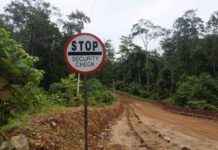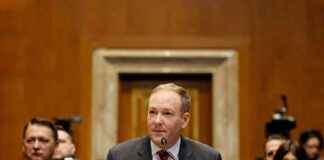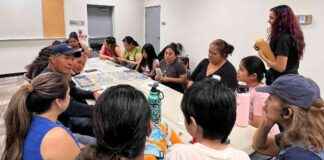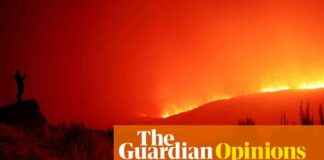The Impact of Trump’s USAID Cuts on Communities: Insights from a Sudanese Activist
In 1961, President John F. Kennedy established the United States Agency for International Development (USAID) as a beacon of American soft power during the Cold War era. From delivering vital health care and education programs to providing essential supplies in war-torn regions, USAID has been a lifeline for millions around the globe. However, the recent freeze on foreign assistance and massive layoffs of USAID staff by the Trump administration have thrown this critical work into disarray.
Nisreen Elsaim, a Sudanese climate and environmental activist, knows firsthand the devastating impact of these cuts. Fleeing her home in Khartoum with her infant son due to escalating conflict, she now resides in Doha, Qatar, volunteering with the Sudanese NGO Female Guardians of the Revolution. This organization offers crucial psychological and therapeutic support to women refugees, a service that has been significantly impacted by the USAID shutdown.
Community Kitchens: A Lifeline Threatened
One of the most striking consequences of the USAID cuts is the closure of hundreds of community kitchens across Khartoum, Sudan. These kitchens, essential for providing food to vulnerable populations, were a testament to the resilience and generosity of the Sudanese people, supported in part by USAID funding. Elsaim highlights the critical role these kitchens played in ensuring access to food, particularly during the dire famine conditions that have plagued Sudan in recent years.
The Interruption of Aid Efforts
Beyond food insecurity, Elsaim sheds light on the broader repercussions of the USAID shutdown. With health services crippled by outbreaks of cholera, dengue fever, and malaria, the absence of USAID support has left a significant void in medical aid and essential supplies. Moreover, the loss of psychological support services for trauma victims, especially women who have endured sexual violence during the conflict, exacerbates the already dire humanitarian situation in Sudan.
Ramadan Support and Time-Sensitive Needs
As the holy month of Ramadan approaches, the sudden withdrawal of USAID funding jeopardizes time-sensitive aid initiatives, such as the distribution of Ramadan bags containing essential food items for fasting individuals. Elsaim underscores the urgent need for alternative solutions to fill this critical gap, emphasizing the unforeseen challenges posed by the abrupt cessation of vital resources and support.
Long-Term Implications and Global Responsibility
Looking beyond the immediate repercussions, Elsaim expresses deep concern about the long-term impact of the USAID shutdown and broader climate denial policies under the Trump administration. She warns of institutional changes that may have lasting effects on American society and global relations, highlighting the interconnectedness of climate change, humanitarian aid, and international cooperation. In a poignant reflection, Elsaim underscores the ethical and scientific imperative for countries like the United States to fulfill their historical obligations in addressing climate change and supporting vulnerable communities worldwide.
A Call to Action and Global Solidarity
In a powerful message to Americans, Elsaim emphasizes the interconnected nature of global challenges, urging individuals to recognize the shared responsibility for fostering peace, health, and environmental sustainability. Drawing parallels between the COVID-19 pandemic and the imperative for collective action, she underscores the importance of upholding democratic values, supporting humanitarian efforts, and confronting climate change as a unified global community. Ultimately, Elsaim’s words resonate as a poignant call to action, reminding us that the consequences of our actions transcend borders and impact lives across the world.














